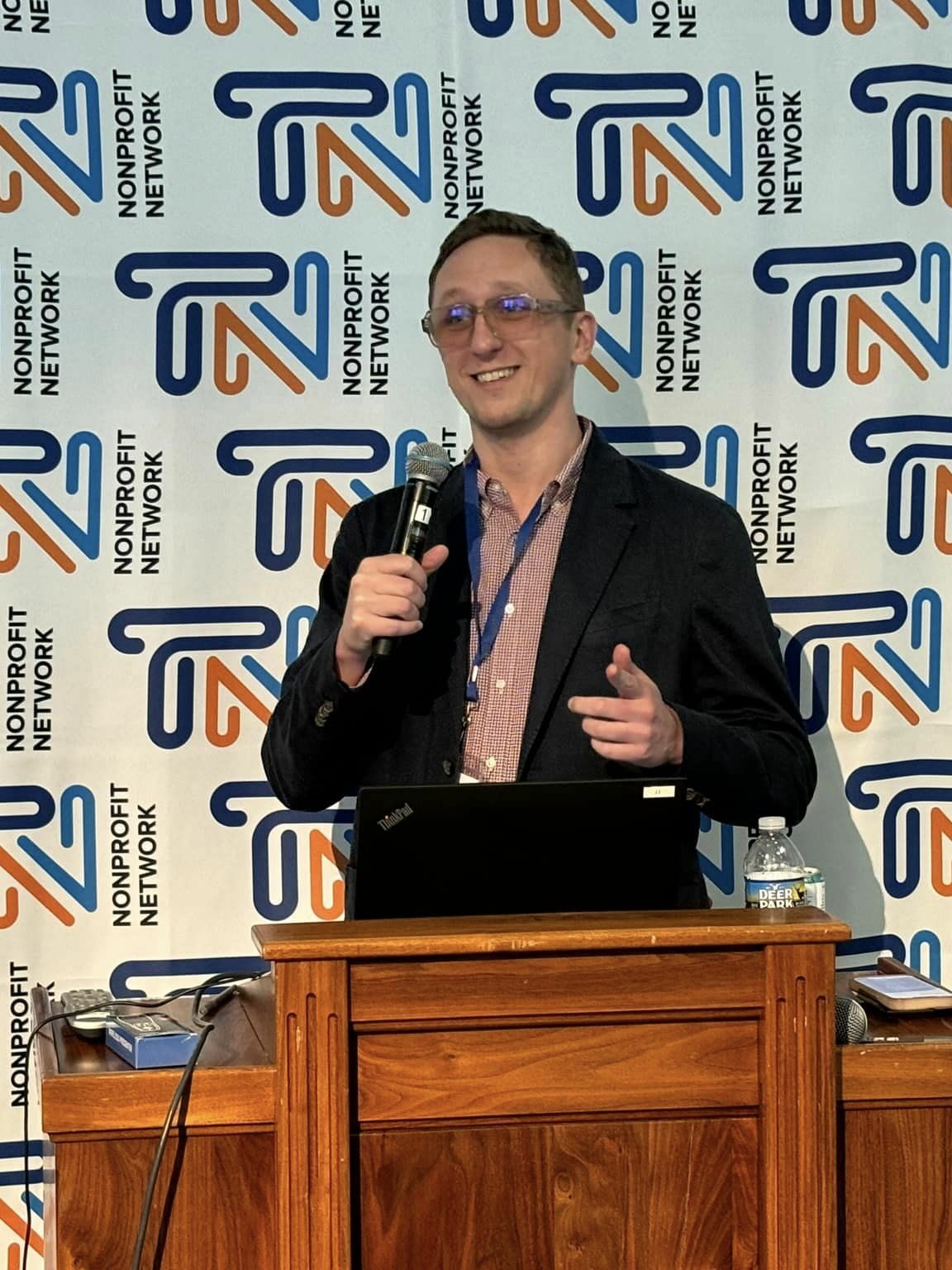by Dr. Kevin Dean
President & CEO
Tennessee Nonprofit Network
Hi, I’m Kevin Dean. I am the President & CEO of a nonprofit in Memphis, and I was diagnosed with persistent depressive disorder nearly 20 years ago.
For me, a typical day revolves around a weighty feeling similar to trudging through the mud with no easy escape route. Sometimes it’s better, sometimes it is worse, but it’s always there. This feeling often forces me to fake my way through entire days of meetings, lunch appointments and conference calls in order to show up the way people need me to show up. It’s an invisible handicap – my albatross – that will stay with me for the rest of my life.

You’re wondering how I can lead at full capacity battling such a constant mental challenge. Three things: medication, unwavering purpose and a rigorous schedule. How I experience mental health is stabilized by demanding professional obligations: leading an organization, volunteering my time in the community, teaching at a local university. When I say that my career in nonprofit has saved my life, it’s not hyperbole.
Leaning on high productivity to cope is very much a shared sentiment as a study conducted by Unum revealed that “employment provides five categories of psychological experience that promote well-being: time structure, social contact, collective effort and purpose, social identity and regular activity.” Throughout my professional career, remaining tethered to a strong sense of purpose has allowed me to outperform my diagnosis by remaining in safe, productive and supportive environments, where I can focus on serving others and not my own chemical imbalance. I’ve found that it’s a lot easier to get out of bed in the morning when you are serving others.
Sharing this truth about myself in this blog may be deemed brave and/or career-altering, but it shouldn’t be. Public acknowledgement of your mental health state cannot continue to be an anomaly. However, the ingrained stigma surrounding mental illness carries weight in a society that has yet to normalize the conversation. We’re experiencing a workforce shortage in the nonprofit sector, and a study by National Council of Nonprofits revealed that more than 50% of nonprofit employees were facing burnout and other mental health struggles.
Depression, anxiety and other forms of mental illness are still characterized as a weakness, and some view diagnosis as a disqualifier for employment, let alone leadership positions. I’ll offer a rebuttal: Productively balancing commitment against mental health struggles pushes me to thrive and conquer beyond a diagnosis. People with mental health diagnoses are not liabilities; they can be assets.
Honestly, mental illness and its correlation to empathetic and proactive leadership have a long, quiet history together. Winston Churchill, for instance, referred to bipolar disorder as his “black dog.” Researchers and psychologists now believe leaders with depression demonstrate deeper empathy, and they often provide a more accurate assessment of problematic circumstances. Perhaps this is the reason Churchill led Great Britain to success when competent and well-regarded Neville Chamberlain could not. Many leaders with depression lead exceptionally well in times of crisis by better addressing problems through a more practical, realistic lens.
If you struggle with mental illness, you are not alone. Annually, one in five of us experience one of its many forms. You should know that acknowledging your mental health status is the first step to emerging triumphant and being an instrument of change. As Dr. Martin Luther King Jr. said, “Everybody passionately seeks to be well-adjusted. But there are some things in our world to which men of good will must be maladjusted.” King himself had many mental health struggles that we don’t often talk about.
May is National Mental Health Awareness Month, and employers and their board members should use this as an opportunity to start deeper conversations about employee mental health.
If you’re not ready to have the conversation, consider this. On average, $17 billion in lost productivity happens annually in the U.S. workforce due to unaddressed health concerns, according to results revealed in “An Employer’s Guide to Behavioral Health Services.” Yes, employees are still responsible for their work, for their actions or inactions, and contributing to a good work culture. It’s the board and CEO’s responsibility to make every effort to ensure that people with mental health diagnosis can thrive.
Now ask yourself a few more questions: Do your insurance policies contain adequate mental health provisions for staff? Do you offer flexible paid time off for both physical and mental health? Does your executive staff know how to handle and make referrals for mental-health issues that show up in the workplace? Is mental health still stigmatized in your workplace? How do we support those with psychological conditions? What policies are in place to ensure a comfortable, safe environment for all? These are questions we must ask ourselves, starting today.
As a leader, understand your role in normalizing the conversation and engage fellow leaders in the process to create safe and neutral spaces for employees to share their mental health experiences and thrive.
Originally published in 2019 in The Daily Memphian
